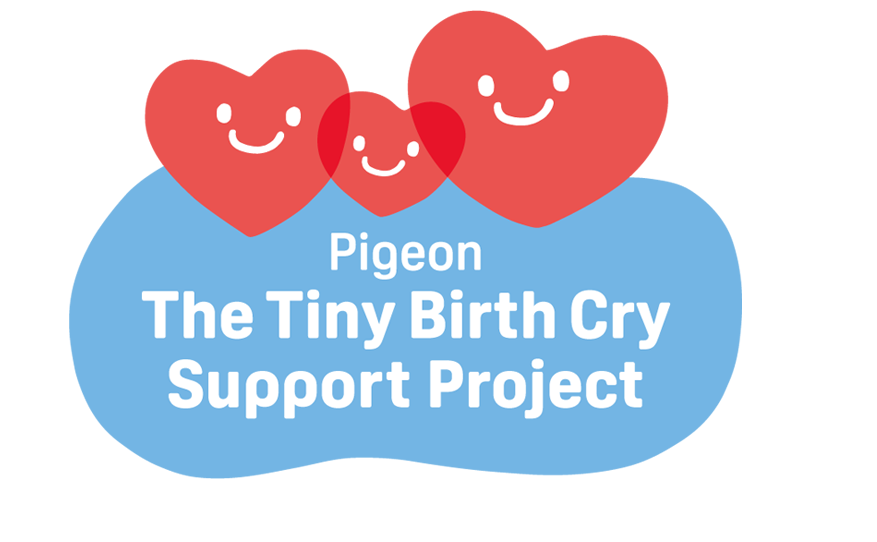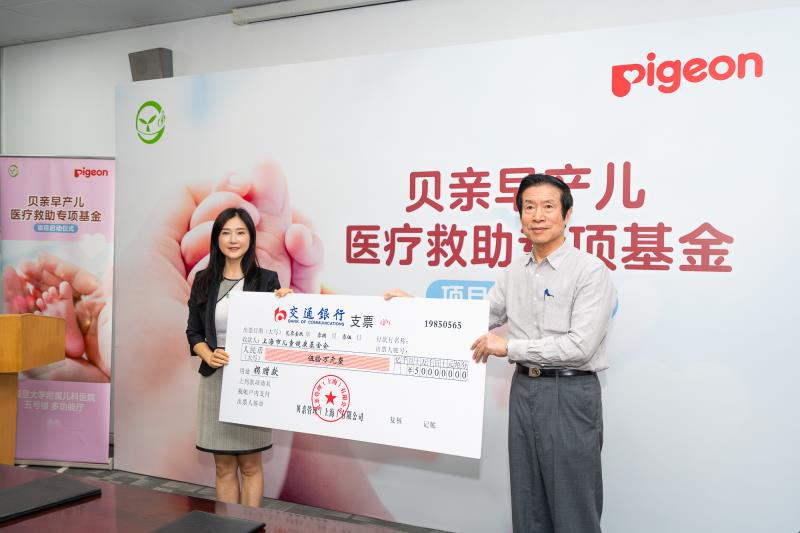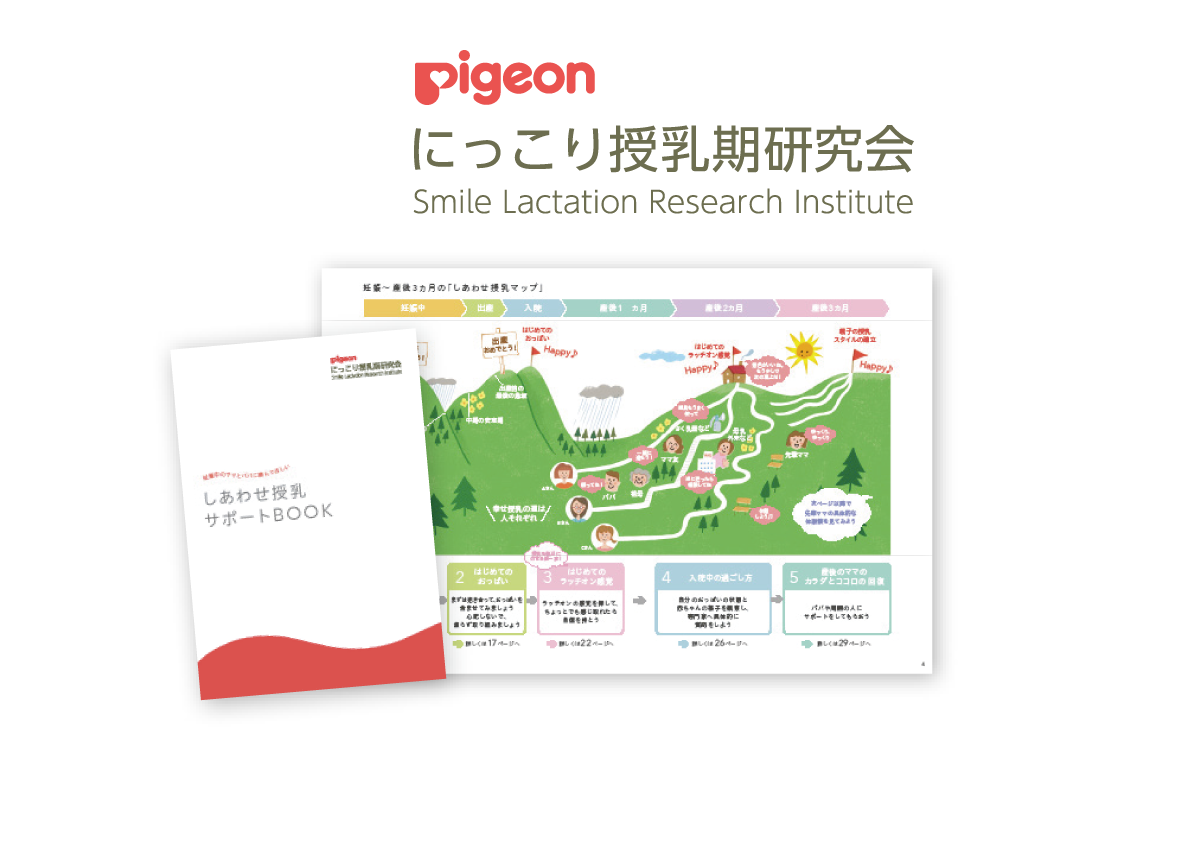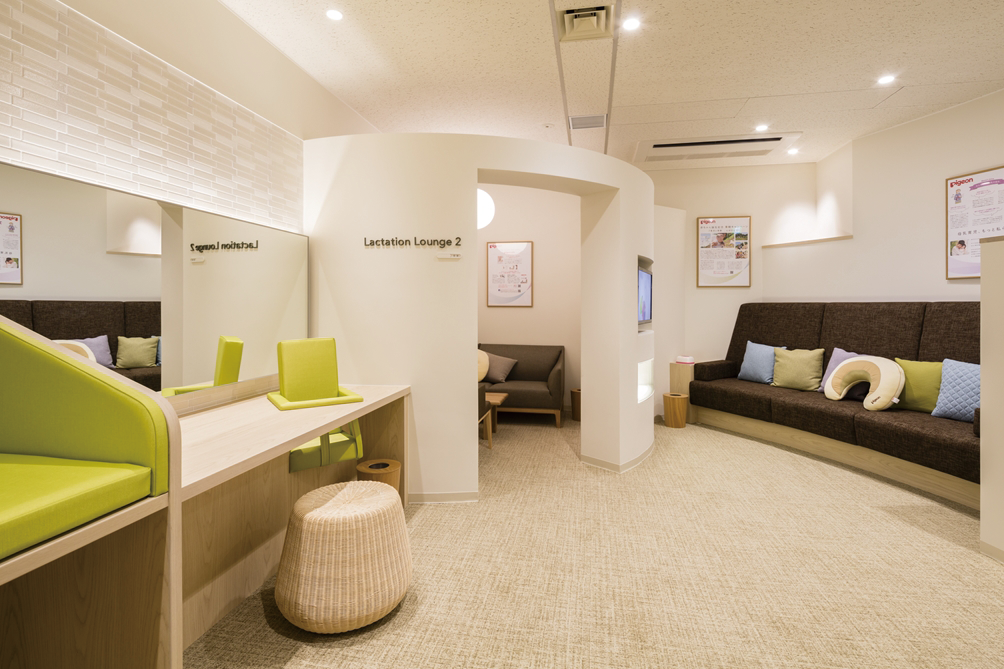We want to make the world more baby-friendly by furthering our commitment to understanding and addressing babies' unique needs. We aim to aim to solve social issues surrounding babies and mothers in all countries and regions we operate. We strive to create a future, full of joy and freedom, that treasures the amazing brilliance inherent in every baby, that encourages curiosity, and that celebrates diversity.
The Tiny Birth Cry Support Project
Babies born prematurely, babies with low birthweights, and babies born with medical conditions that require special treatment. Pigeon’s Tiny Birth Cry Support Project is designed to help these babies, in the hope that every family can experience peace of mind and happiness.
Products for babies who require specialized support
Pigeon products are the results of over 60 years of product development based on research about babies and input from parents raising babies. Our nursing bottles and nipples, for example, are born of research into babies’ suckling behavior from a wide range of perspectives, including monitoring at the Central Laboratory, observations of families in their homes and observation of babies’ oral cavities by ultrasonic (“echo”) tomography in maternity wards. One cherished hope at Pigeon is to “enable all babies to enjoy better suckling.” Through joint research with hospitals’ newborn intensive care units (NICUs), Pigeon is developing specialized products that enable babies with low birth weight or other physical issues to drink breast milk with minimal effort. These include nipples for low-birth-weight babies, nipples for babies with weak suckling strength and nursing bottles for babies with cleft lips and/or palates. Similarly, our pacifiers for premature babies are used as one way to alleviate the pain to babies from medical care and treatment. The expertise we have accumulated through our constant support for babies in maternity wards and hospitals is a great reserve of strength for Pigeon, as it is reflected even in our general product development.
-
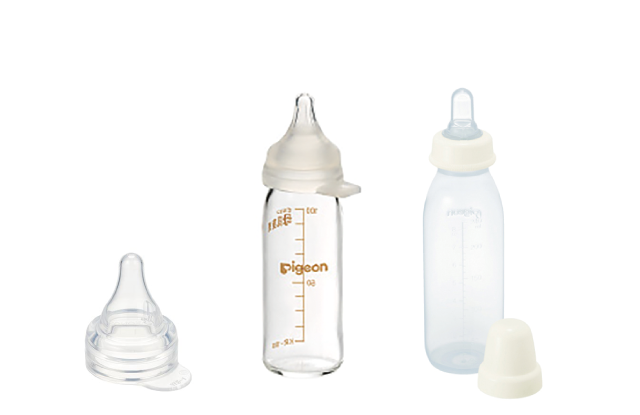
Nursing bottle nipple for babies with weak sucking function (Left)
Nursing bottle for low-birthweight babies (Center)
Nursing bottle for babies with cleft lips and/or palates (Right)
-
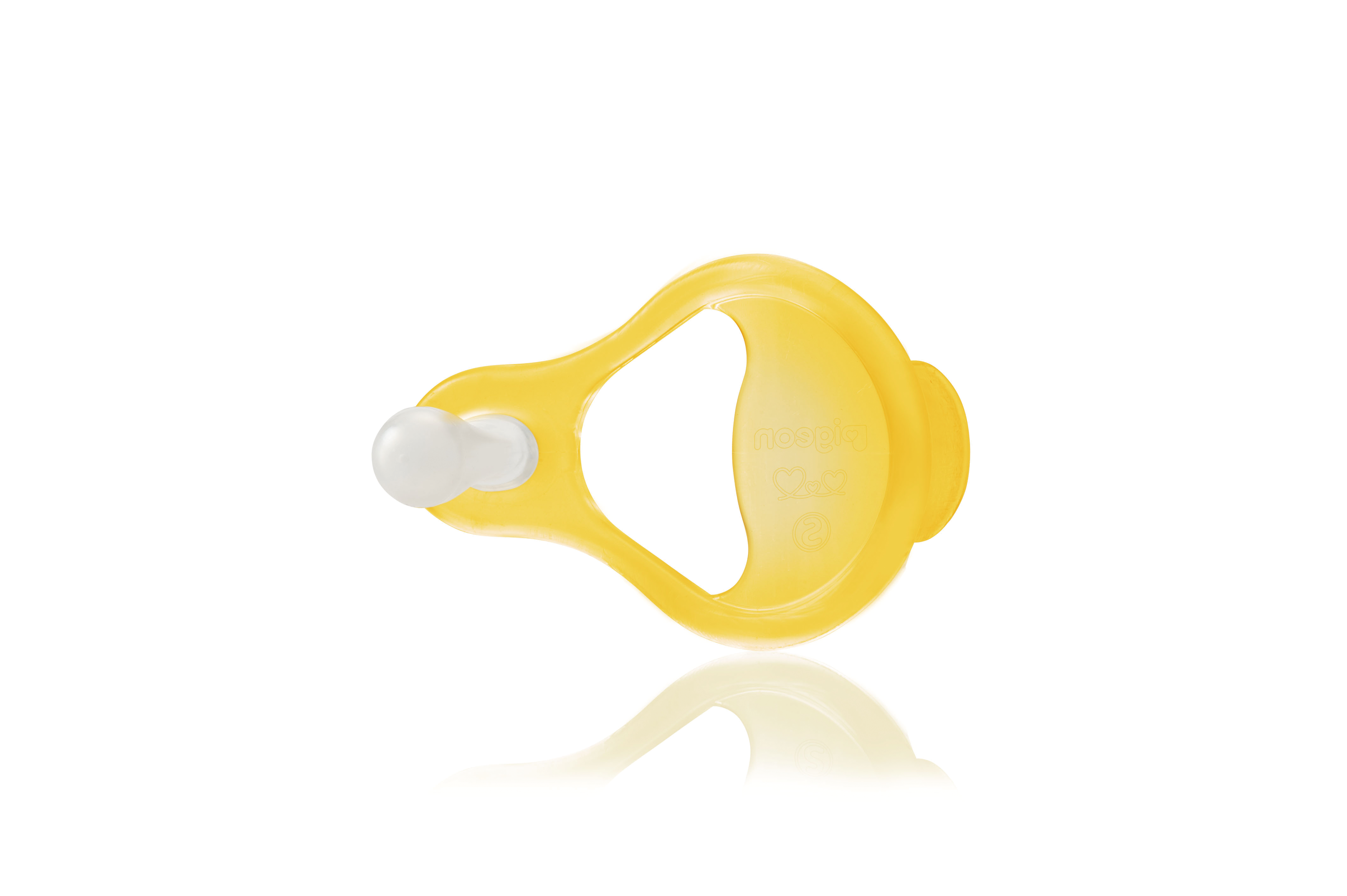
Pacifier for premature and low-birthweight babies
-
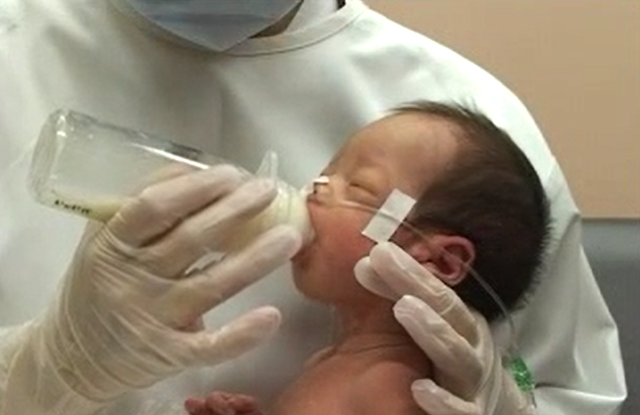
Helping babies who were born small
Addressing issues that enfold babies and their families
Support for Human Milk Banks
Since April 2020, we have provided support for establishing Human Milk Banks. As part of this effort, we provided full support for the opening of the Nihonbashi Human Milk Bank at Pigeon’s Head Office in September 2020, the second such bank in Japan. The bank is capable of supplying donated human milk to approximately 600 babies a year. In China, Pigeon has become the first main partner in the Beijing Chunmiao Charity Foundation’s “Human Milk Bank Special Fund” project. In the initial year of 2021, we will provide active support to help the foundation establish new human milk banks and operate existing facilities.
A human milk bank is a facility that supplies treated donor milk (donated breast milk) to premature and extremely-low-birth-weight babies (babies weighing less than 1500g at birth) who are unable to drink their own mothers’ breast milk. At the human milk bank, the donor milk is inspected, pasteurized and stored safely, in accordance with international operating standards.
Pigeon Preterm Infant Health Insurance (China)
In November 2018, Pigeon (Shanghai) Co., Ltd. partnered with Ping An Insurance Company of China, Ltd. to establish the country’s first “preterm infant health insurance.” While neonatal care is advancing in China, currently many families are obliged to cut treatment short for economic reasons. This insurance supports families with premature babies by providing relief for such economic burdens.
Mental health support for families of late preterm infants: The Pigeon Smile Lactation Research Institute
In March 2015, we launched the Pigeon Smile Lactation Research Institute in collaboration with various specialists on mothers and babies during breastfeeding, with the aim of identifying issues regarding the breastfeeding period and offering solutions. Since 2018, we have conducted research aimed at better understanding the feelings of mothers of late preterm babies (those born 34–36 weeks after conception) who have been admitted to NICUs or growing care units (GCUs), and we have presented our findings at academic
conferences. Our research revealed the need to provide emotional support to mothers of babies born prematurely. As part of our support efforts, we worked with members of our research team to produce a booklet for the families of late preterm babies admitted to NICUs/GCUs and distributed it free of charge.
-
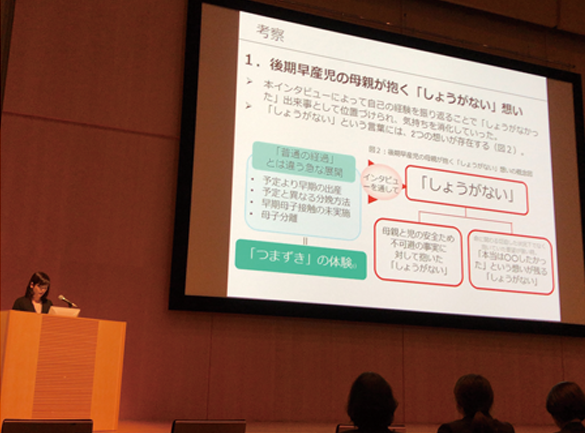
Academic presentation at the 59th General Meeting of the Japan Society of Maternal Health
-
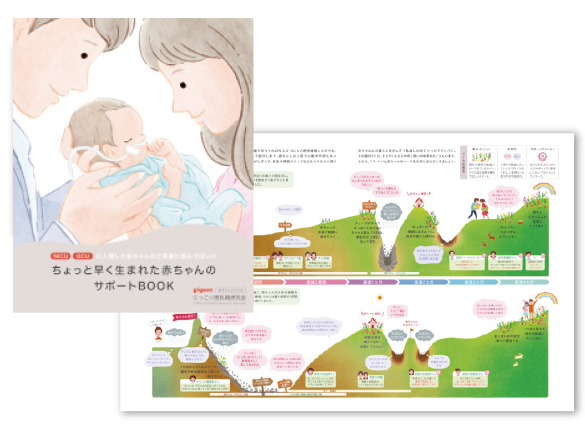
Support booklet for families of late preterm babies admitted to NICUs/GCUs
Lactation Research Activities: Pigeon Smile Lactation Research Institute
Guided by the philosophy, “to create a society that values more babies growing up healthy and more mothers and fathers treasuring the feeling of joy that childrearing brings,” a project called the “Pigeon Smile Lactation Research Institute” was launched in March 2015, in partnership with specialists in mother-child interactions during lactation periods, to address issues in breastfeeding and propose solutions to them. In 2016 the Institute published the Happy Breastfeeding Support Book, aimed at providing comprehensive information to lactating mothers. As of December 2020, a cumulative 620,000 copies have been distributed free of charge.
Establishing and supporting lactation lounges
Pigeon is committed to fostering environments in which any mother can raise babies on breast milk with peace of mind and supporting mothers who wish to return to the workplace after childbirth. To this end, Pigeon is establishing and supporting a wide range of breastfeeding facilities on the premises of companies and other public places around the world. As of December 2020, the number of such facilities has grown to 9,465 in 21 countries.
- Headquarters
Address: 4-4 Nihombashi Hisamatsu-cho, Chuo-ku, Tokyo 103-8480
TEL: +81-(0)3-3661-4200
Hours of operation: 9:00 AM to 5:00 PM
- Central Laboratory
Address: 6-20-4 Kinunodai, Tsukubamirai-shi, Ibaraki 300-2495
TEL: +81-(0)297-52-6531
Hours of operation: 9:00 AM to 5:00 PM




